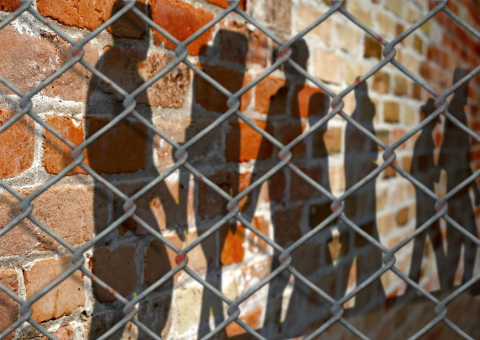
Many people who oppose immigration say that it increases crime. But does immigration really affect crime? Studying a country whose proportion of migrants has tripled in less than ten years, researchers find immigration significantly impacts people's perceptions of crime but has no effect on actual crime.
The research, led by Nicolas Ajzenman, a professor of economics at McGill University, shows that while migrants don't cause crime rates to increase, false perceptions endure anyway.
"Many people seem to believe a connection exists between crime and immigration. We wanted to explore why this is the case, by looking at the example of Chile, a country recently exposed to a massive influx of immigrants," says Ajzenman.
"In Chile, migrants represented close to 6.5 per cent of the population in 2018. Not only did the magnitude change, but also the composition of immigrants changed strongly in recent years, with the arrival of people from Venezuela and Haiti, a trend is similar to other Latin American countries," he explains.
Misconceptions about crime increase when migrants arrive in large numbers
The researchers found that people who are more exposed to immigration inflows are more likely to rank crime as their biggest concern. They're more likely to believe that crime is affecting their quality of life, and more likely to believe that they will be a victim of a crime soon.
However, those citizens weren't any more likely to have been victims of any crime in the previous months. Nor did the number of homicides grow disproportionately in the municipalities where they live, according to the researchers. The researchers also found that not only do people become scared, but they also take action, such as installing more alarms or paying for private security. These misperceptions may be driven in part by local media, as crime-related fears and reactions are more significant in areas with a relatively large number of local media stations, say the researchers.
Origin and education levels of migrants increase unfounded fears
The researchers investigated whether a plausible explanation for people's fears could be discrimination against certain types of immigrants. Interestingly, the researchers found that crime-related concerns are mainly driven by immigrants that don't have ethnically European origins - suggesting that immigrants with European origins enjoy different status compared to other immigrant groups. They also found that the impact on citizens in terms of behavioural reactions, such as installing alarms, appear to be more pronounced when immigrants are less educated.
"Immigration is increasingly an important topic in contemporary political debates. And hostility towards immigrants has become a powerful component of far-right politics and extremist groups around the world," says Ajzenman.
"Our research demonstrates that the concerns of citizens and governments over the potential relationship between immigration and crime in Chile appear to be unfounded, which holds significant implications for policy," he adds.
About the study
"Immigration, Crime, and Crime (Mis)Perceptions" by Nicolas Ajzenman, Patricio Dominguez, and Raimundo Undurraga is forthcoming in the American Economic Journal.
About McGill University
Founded in Montreal, Quebec, in 1821, McGill University is Canada's top ranked medical doctoral university. McGill is consistently ranked as one of the top universities, both nationally and internationally. It is a world-renowned institution of higher learning with research activities spanning three campuses, 11 faculties, 13 professional schools, 300 programs of study and over 39,000 students, including more than 10,400 graduate students. McGill attracts students from over 150 countries around the world, its 12,000 international students making up 30% of the student body. Over half of McGill students claim a first language other than English, including approximately 20% of our students who say French is their mother tongue.






